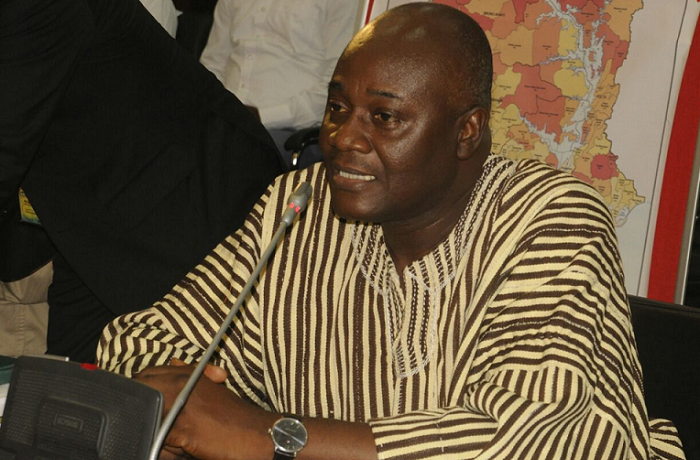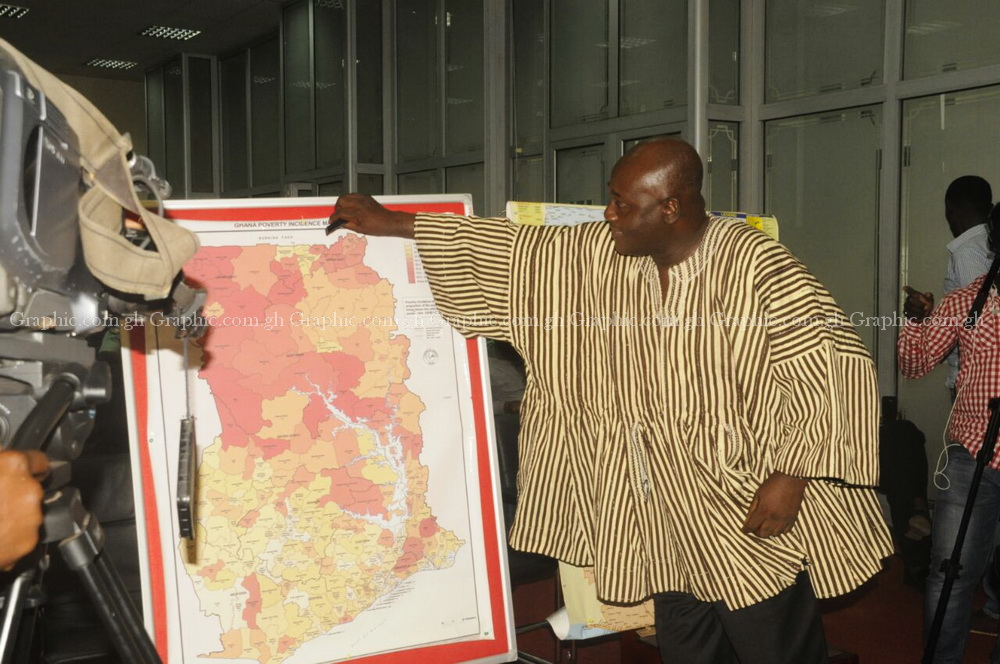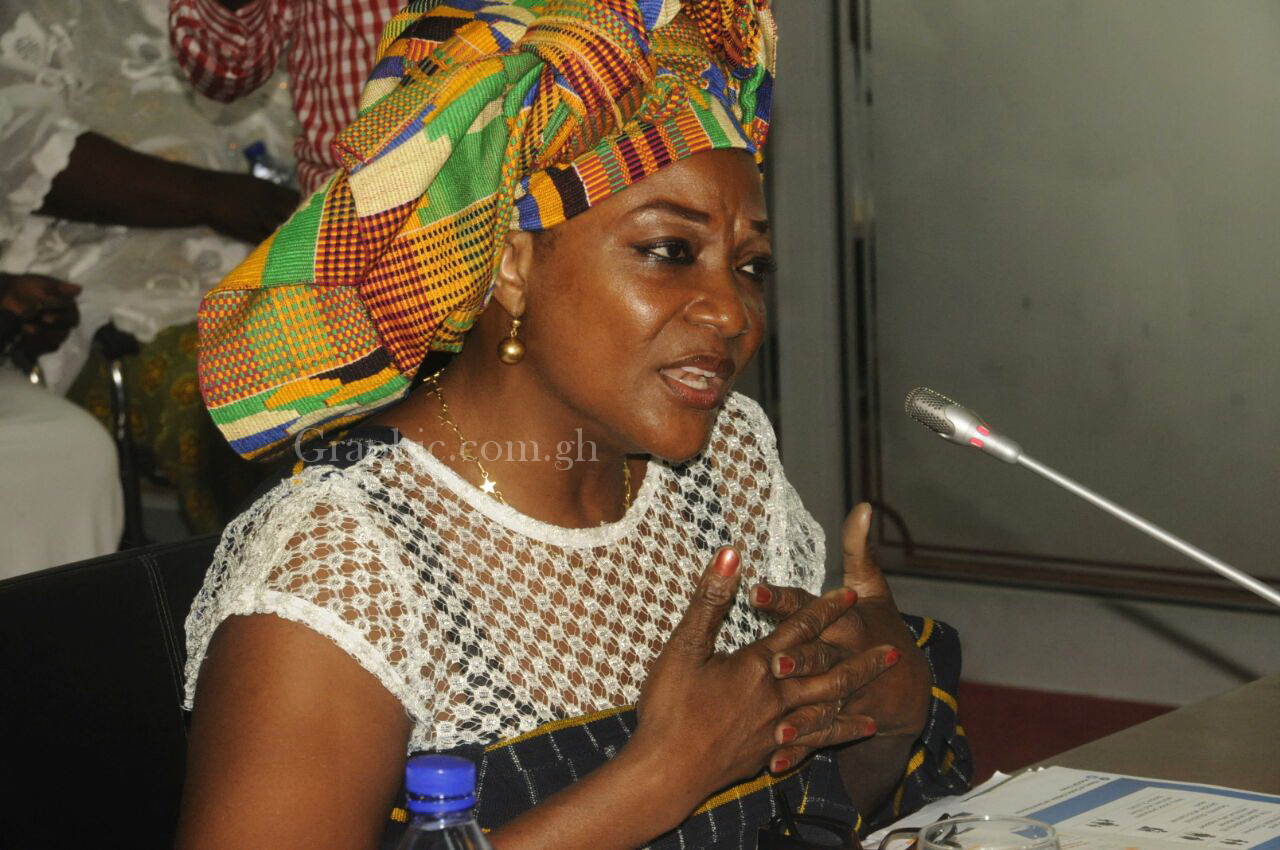
National interest to determine creation of new regions — Dan Botwe
The Minister designate for Regional Reorganisation and Development, Mr Daniel Kwaku Botwe, says the government’s decision to create four additional regions is not for political expediency but rather to accelerate development in every part of the country.
“The motive is in the national interest and not for political consideration,” he explained.
He said chiefs and other opinion leaders would have more roles to play in the creation of new regions in the quest for fairness.
Responding to questions during his vetting by the Appointments Committee of Parliament (ACP) yesterday, Mr Botwe said the need for effective and accelerated development informed the decision, with the Regional House of Chiefs playing an effective role in the process.
While the New Patriotic Party (NPP) promised to create four more regions during the 2016 campaign, the National Democratic Congress (NDC) also promised to create five more regions had it won the elections.
Mr Botwe said if given the nod, he would work together with the NDC, since the two parties agreed on the creation of new regions to promote development.

No political interest
He downplayed suggestions that being a former general secretary of the NPP, he would attempt to encourage gerrymandering in the creation of the regions to give his party a political advantage.
Rather, he explained that history had shown that gerrymandering had never given one political party an advantage and cited the creation of new constituencies under the NPP and the NDC.
Mr Botwe told the committee that the President’s motive to create those regions was more in the national interest than a partisan one and asked Ghanaians to support the process.
On the economic benefits of the new regions, the minister designate said the creation of the regions would accelerate development in Ghana in the long run.
On the issue of a possible boundary dispute in the creation of the regions, the ministerial nominee said: “We don’t need to reinvent the wheel,” as he explained that people with expertise would be brought on board to proffer advice on the process.
Asked what would become of him after the regions had been created, Mr Botwe posited that his mandate would not necessarily end with the creation of the region but he would still oversee affairs of those regions in terms of providing them with the needed resources to stand on their feet.
Taking her turn at the Appointments Committee of Parliament, the Minister designate for Gender, Children and Social Protection, Ms Otiko Afisa Djaba, said the government intended to expand the beneficiaries of the Ghana School Feeding Programme (GSFP) from the current 1.3 million to three million.
She also proposed the decoupling of the programme from the District Assemblies Common Fund to ensure regular cash flow.
Ms Djaba said, in an answer to a question, that caterers of the school feeding programme were not going to be engaged on the basis of their political affiliations.
Rather, they would be engaged based on their competence and after they had satisfied the recruitment process.
She indicated that the programme, once expanded, would cater for the numerous caterers who wished to apply to participate in the programme.
On the issue of initiating policies to better the lives of head porters, popularly known as kayayei, the minister designate said the government would design and develop a plan of action by building a database of kayayei nationwide in order to provide accommodation and organise skills training for them.
“We currently have over 50,000 kayayei in the country and there is no regulation in place to address their challenges. We will as started by Nana Oye Lither, to include them in the poverty alleviation project and also provide them with skills training,” she said.
Child labour
On the issue of bringing the child labour menace under control, Ms Djaba stated that Ghana was a signatory to treaties that frowned on child labour, adding that the enforcement of regulation and advocacy to parents to educate their children - a campaign she would lead - could help address the issue.
She added that she would also work hard towards eliminating child labour in areas where it was prevalent.

Denial
She denied supporting the Member of Parliament (MP) for Assin Central, Mr Kennedy Agyepong, when he accused the Chairperson of the Electoral Commission (EC), Mrs Charlotte Osei, of securing her position on the altar of sexual favours.
In her defence, Ms Djaba said when the issue came up she expressed the view that “being the first woman to occupy that seat and for her integrity there should be an investigation to clear her name”, adding that women deserved respect and recalled that she had been in a similar situation of attacks.
Turning the spotlight on how to increase women in the governance process, Ms Djaba spoke of parity and equity in public office and that the affirmative action would be championed further during her tenure by organising capacity building and advocacy programmes.
Attacks on President Mahama
Some members of the Minority side of the APC took issues with Ms Djaba for describing former President Mahama in bad language during the 2016 electioneering.
She was accused of describing Mr Mahama as wicked and an embarrassment. When she was asked to withdraw the comments, she said her descriptions were criticisms and not insults.
The minister designate described the former President as her brother and said she made those comments out of conviction.
Monitoring and evaluation
Meanwhile the Minister designate for Monitoring and Evaluation, Dr Anthony Akoto Osei, told the members of the APC that his role was to ensure that key policy indicators of the various ministries were implemented in an effective, efficient and timely manner, writes Musah Yahaya Jafaru.
He said once the Cabinet agreed on the key policy indicators, it was his responsibilty to monitor the implementation of the policies to ensure the attainment of the set targets.
Dr Akoto Osei denied suggestion that his work would conflict with that of the Chief of Staff and Senior Minister, and indicated that the Chief of Staff was responsible for the Presidency, while the Senior Minister was in charge of the economic ministries.
He said President Nana Addo Dankwa Akufo-Addo had informed him that he would be a Cabinet Minister beside the fact that he was a member of the Economic Managment Team.
Dr Akoto Osei said, the President knowing that he came to power with some promises, President Nana Addo Dankwa Akufo-Addo wanted to see to achievement of those programmes, hence the need for a minister in charge of monitoring and evaluation.
He said the position of the Minister responsible for Monitoring and Evaluation had been in operation in South Africa since 2004, and indicated that it was a good move.
Dr Akoto Osei said he intended to have a technical team to support him in the monitoring and evaluation exercise.
Dr Akoto Osei has been Member of Parliament (MP) for Old Tafo Constituency since 2005. He was a Minister of State at the Ministry of Finance and Economic Planning from 2007 to 2009; Deputy Minister , Minister of Finance from 2003 to 2007, and Associate Professor of Economics at the Dillard University, New Orleans, Los Angeles.
